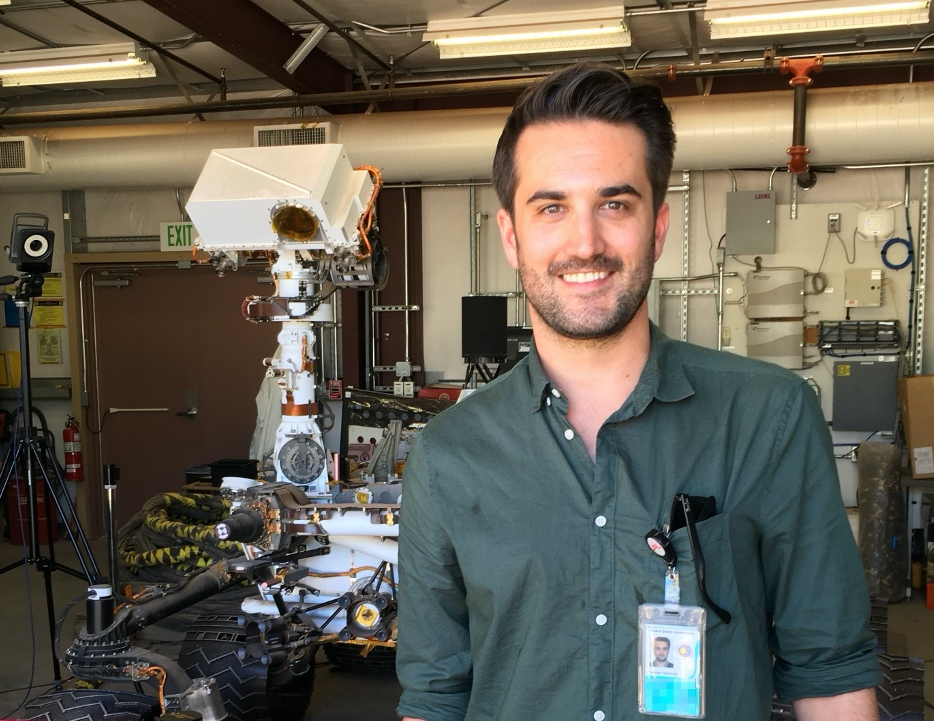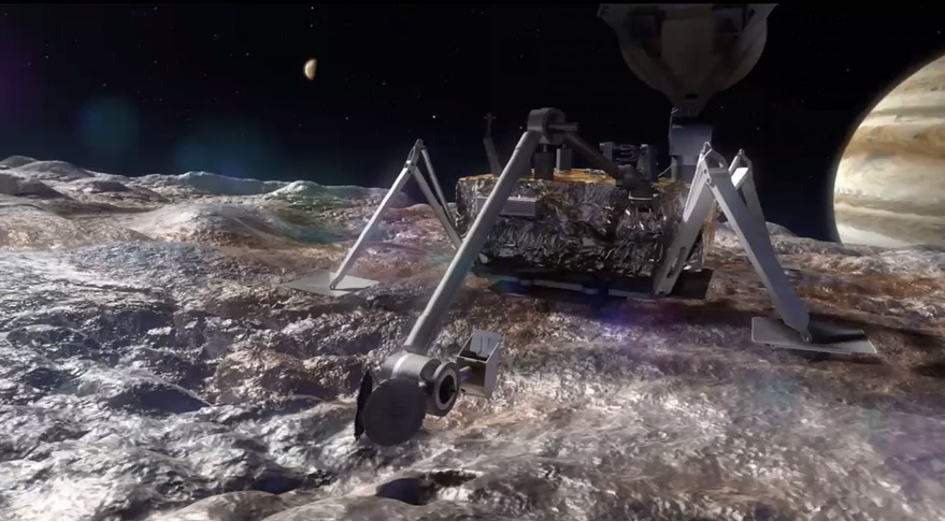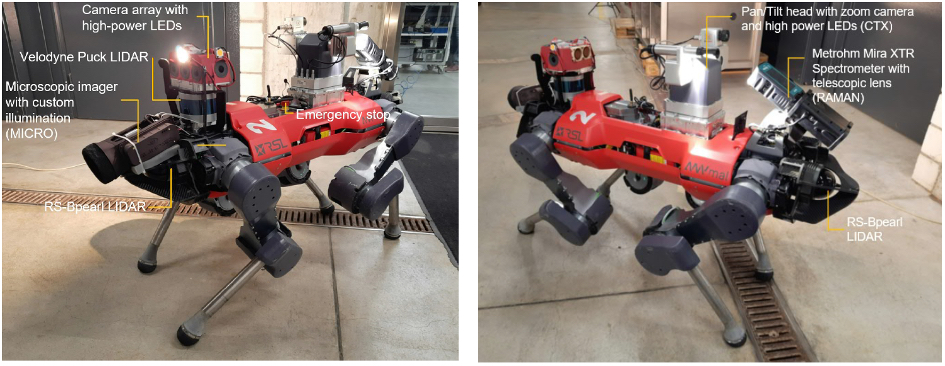Meet a Space Scientist: Florian Kehl
This month we have interviewed Florian Kehl, senior scientist at the UZH Space Hub (in front of Mars Science Laboratory (Curiosity) engineering model at NASA JPL in this picture). His research focuses on instrument development for astrobiology and space biology missions, microgravity research, and in-situ resource utilization (ISRU).

What brought you to the UZH Space Hub, what is your role here?
After 5+ years at NASA’s Jet Propulsion Laboratory, California Institute of Technology, I decided to return to Switzerland, and the UZH Space Hub was the perfect next step in my career. I realized how fast the space sector is currently growing in Switzerland, and I wanted to play an active role in this development. With its top universities and best-in-class scientists, countless high-tech companies, and innovative startup scene, Switzerland provides an ideal environment for the new era of space exploration. And I wanted to be a part of it.
What is the main area of your research?
My research mainly focuses on instrument development for astrobiology and space biology missions, microgravity research, and in-situ resource utilization (ISRU). In the field of astrobiology, we build instrument suites to look for signs of life beyond Earth, such as Mars or the icy moons of Jupiter and Saturn. In space biology, we try to understand how terrestrial life behaves in space under reduced gravity and increased exposure to radiation. With instrument developments for ISRU, we support robotic resource prospecting for potential lunar or Martian bases but also advance technologies for a more sustainable future here on Earth. My teaching activities include a new class at UZH on Biosignatures and Life Detection starting in spring 2022.

What is your connection to the Space sector?
I have been fascinated by space ever since. I held presentations on Mars rovers back in elementary school and built rockets in my parents’ basement (I’m surprised that I still have all my fingers). It literally was my childhood dream to work in the space sector. Hence, after my master’s thesis on attitude controllers for small-scale rockets at UC Berkeley and my PhD at ETH Zurich, I received a NASA fellowship and was later hired permanently at NASA Jet Propulsion Laboratory’s Chemical Analysis and Life Detection Group. Besides my new involvement at the UZH Space Hub as a senior scientist, I am also a lecturer at and affiliated with the Lucerne University of Applied Science’s Space Biology Group, continue working for NASA JPL as a subcontractor, and support the ARIS space initiative in an advisory role.
What do you like most about your job?
I like to explore places where nobody has ever been before, and I like to invent solutions to problems nobody has ever thought about before. Space exploration offers both. Every day is different, and for sure never boring. I also like to inspire the next generation of scientists and engineers, and space for sure is a grateful topic to spark their interest.
What do you like about Space?
Its vastness, the mysteries it holds, the beauty it has created, the wonders and worlds yet to be discovered.

What would be the greatest achievement in the Space Sector?
I hope that by studying other planets, by looking for alien life, and looking back from the stars at our own planet, people will realize how precious our pale blue dot is, and that we all inhabit the same spherical rock traveling through space and time, with no borders visible from above. I am hopeful that through space exploration, people will gain this perspective at least partially.
You are part of the UZH Space Hub: What do you think this will mean for you and your research?
UZH Space Hub is an ideal platform to initiate and facilitate multidisciplinary collaborations between different groups, institutes, and universities required to solve the demanding challenges faced in space-related projects. Its growing network and visibility will hopefully attract more talented scientists, foster academic exchange, and stimulate partnerships with academia and industry, thereby also accelerating my research.